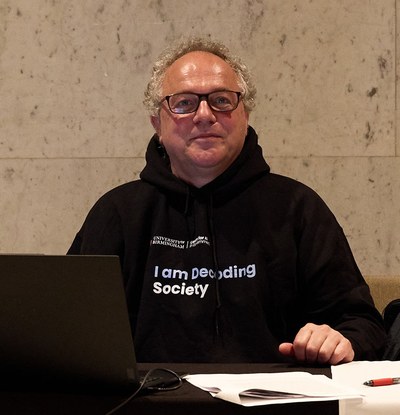Thomas C. Schmidt
 |
AG INET Dept. Informatik HAW Hamburg Berliner Tor 7 D-20099 Hamburg, Germany Room: 4.80A |
Email: t.schmidt@haw-hamburg.de
|
Thomas teaches Computer Networks, Internet Technologies and Distributed Systems at Hamburg University of Applied Sciences (HAW), where he heads the Internet Technologies research group (INET). Prior to moving to Hamburg, he was director of the computer centre at FHTW Berlin. He studied mathematics, physics and German literature at Freie Universität Berlin and University of Maryland and received his Ph.D. from Freie Universität Berlin in 1993.
Since then he has continuously conducted numerous national and international projects. He was the principal investigator in a number of EU, nationally funded and industrial projects. In his team, the Virtual Design collaboration platform was developed in early 1996. Work in the field of Hypermedia and Content Management Systems continued with the Multimedia Information Repository (MIR), as well as the Hypermedia Learning Object System (hylOs). Major contributions in Multimedia Networking are the Tree Morphing Protocol for mobile SSM sources, AuthoCast for authenticating multicast senders, Bi-directional Scalable Adaptive Multicast (BIDIR-SAM), which operates in overlay and hybrid environments, and a mobile videoconferencing solution in the project Moviecast.
Currently, Thomas is also involved in several open source projects that have gained significant impact like the IoT operating system RIOT, the C++ Actor Framework (CAF), and others.
His continued interests lie in a next generation Internet, Internet backbone routing and security, multimedia networking, and the Internet of Things. He serves as co-editor and technical expert in many occasions and is actively involved in the work of IETF and IRTF, where he co-chaired the SAM RG.
Further information:
